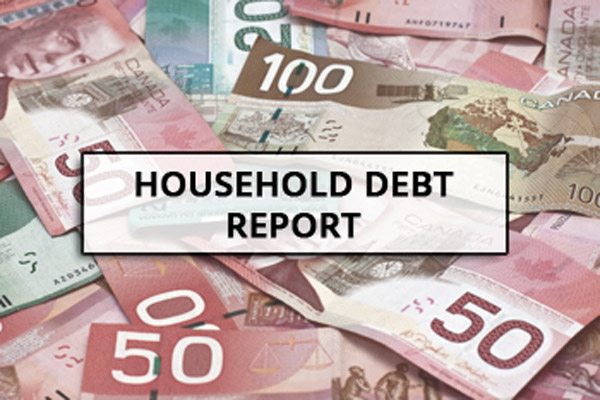My Real Estate Blog - Market Trends, Tips & Updates
Canada's record household debt is threatening its financial stability
10/26/2016 | Posted in Financial Health by Paul DeAdder | Back to Main Blog Page

Canada’s debt, swelled by a decade-long housing boom to almost triple the size of its economy, is drawing increasing concern from an international banking community that says it threatens growth and financial stability.
The combined debt of Canadian governments, companies and households reached US$4.4 trillion in the first quarter, or 288 per cent of gross domestic product, exceeding the same gauge for the U.S., the U.K. and Italy, according to the Bank for International Settlements.

While Canada boasts the lowest government debt load among Group-of-Seven countries, household debt is the highest of its peers, the Basel, Switzerland-based BIS said last month in its quarterly report. In September, Statistics Canada reported household liabilities rose to 100.5 per cent of GDP, exceeding the size of its economy for the first time.
Canada was the only developed country showing early signs of stress in its domestic banking system amid “unusually high” credit growth relative to GDP, the BIS said.
“This debt overhang represents one thing and one thing only: a pervasive constraint on Canada’s economic growth potential,” David Rosenberg, chief economist and strategist at Gluskin Sheff & Associates Inc. said by phone from Toronto. “When you get to levels on total debt that makes even the Italians blush, you know you’re in a straitjacket.”
The economy continues to struggle to find growth drivers in the wake of an oil-price slump with exports consistently disappointing and business investment limping. Figures released last week showed retail sales fell 0.1 per cent in August, the third monthly decline, and the inflation rate trailed forecasts at 1.3 per cent. The weak data comes after the Bank of Canada cut its growth forecast on Oct. 19 to 1.1 per cent for this year from a previous 1.3 per cent forecast, and to 2 per cent in 2017, from 2.2 per cent.
 Investors Unfazed
Investors Unfazed
That isn’t stopping foreign investors from loading up on Canadian bonds. Net purchases by international investors reached $9 billion in August, taking the year-to-date number to $73.6 billion, the largest net inflow for the period since 2010.
Investors are attracted to the sovereign’s top-notch credit rating among all three major rating companies and its positive yields at a time when many other countries are charging investors to hold their debt. The rate on Canada’s 10-year federal government bond yielded 1.12 per cent at 7:53 a.m. in Toronto, compared with minus 0.05 per cent for comparable Japanese bonds, 1.06 per cent on the U.K.’s and 1.37 per cent on Italy’s.
Canadian federal bonds returned 7.3 per cent in U.S. dollar terms this year, compared with 8.7 per cent for sovereign bonds globally and 4.3 per cent for U.S. Treasuries, according to data compiled by Bloomberg.
But the reliance on foreign funding has made Canada more vulnerable to capital flight than before the financial crisis in 2008, according to a report from HSBC Holdings Plc. The country is carrying a historically high current account deficit of about 3 per cent of GDP, compared with surpluses before the crisis, David Watt, chief economist at HSBC Bank Canada, said in the report.
Housing Measures
“Right now Canada is the place to go, but that can change quickly,” Watt said by phone. He estimates Canada’s total debt swelled to 294 per cent of GDP in the second quarter and even higher in the third. “What screams out to me is that we are now heavily dependent on non-residents providing a lot of funds and what we do need is households to do more active saving.”
The government has been actively trying to get households to reduce debt, mostly by implementing new measures to cool the country’s housing market, where prices have soared in Vancouver and Toronto in the past decade. Rules introduced this month include a new stress test for buyers and closing a tax loophole used by some offshore buyers.
Those measures, while necessary, could have some unintended consequences and backfire, Aubrey Basdeo, head of Canadian fixed income at BlackRock Inc., said in a phone interview from Toronto. “If I were a policy maker, I don’t think I could sleep at night because you never know what shock you’re going to have to deal with and you have very few arrows in the quiver.”
Source: Bloomberg.com

